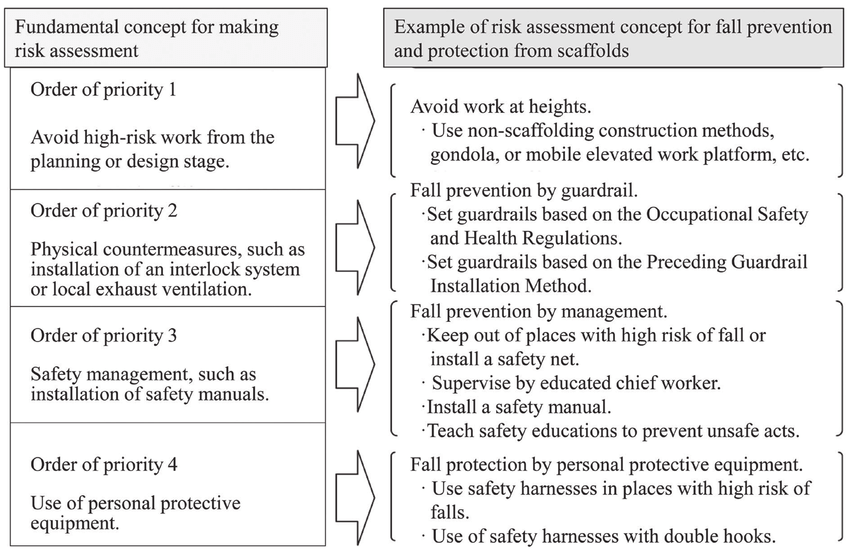The Best Guide To Dementia Fall Risk
The Best Guide To Dementia Fall Risk
Blog Article
Unknown Facts About Dementia Fall Risk
Table of ContentsThe smart Trick of Dementia Fall Risk That Nobody is Talking AboutExcitement About Dementia Fall RiskNot known Incorrect Statements About Dementia Fall Risk 4 Simple Techniques For Dementia Fall RiskWhat Does Dementia Fall Risk Mean?
Analyzing autumn danger aids the whole health care group develop a much safer setting for each individual. Make certain that there is a designated area in your clinical charting system where personnel can document/reference ratings and document relevant notes associated with drop prevention. The Johns Hopkins Autumn Danger Evaluation Device is just one of several devices your team can make use of to help prevent unfavorable clinical events.Person falls in hospitals are typical and devastating damaging occasions that continue despite years of initiative to lessen them. Improving interaction across the analyzing registered nurse, treatment team, patient, and person's most included family and friends may enhance autumn prevention initiatives. A group at Brigham and Women's Hospital in Boston, Massachusetts, sought to create a standardized fall avoidance program that focused around enhanced communication and person and family members interaction.

The development group stressed that effective application depends upon individual and team buy-in, integration of the program right into existing process, and integrity to program procedures. The group noted that they are grappling with just how to make certain connection in program implementation throughout periods of situation. Throughout the COVID-19 pandemic, as an example, an increase in inpatient drops was related to limitations in patient involvement together with constraints on visitation.
Excitement About Dementia Fall Risk
These incidents are normally considered preventable. To implement the treatment, organizations need the following: Accessibility to Loss pointers resources Autumn pointers training and retraining for nursing and non-nursing team, including new registered nurses Nursing operations that enable individual and family members engagement to carry out the falls evaluation, make sure usage of the prevention strategy, and conduct patient-level audits.
The results can be extremely destructive, frequently speeding up individual decline and triggering longer medical facility remains. One research study approximated keeps boosted an additional 12 in-patient days after a client autumn. The Autumn TIPS Program is based upon appealing patients and their family/loved ones across three primary processes: assessment, customized preventative interventions, and bookkeeping to make certain that people are participated in the three-step loss avoidance procedure.
The individual evaluation is based on the Morse Autumn Range, which is a confirmed loss threat analysis tool for in-patient medical facility settings. The scale consists of the 6 most common reasons patients in hospitals drop: the client autumn history, high-risk conditions (consisting of polypharmacy), use IVs and various other exterior gadgets, mental status, stride, and movement.
Each threat aspect relate to several workable evidence-based treatments. The nurse develops a plan that incorporates the interventions and is noticeable to the care team, client, and household on a laminated poster or published aesthetic aid. Nurses develop the strategy while consulting with the client and the patient's family members.
What Does Dementia Fall Risk Do?
The poster functions as an interaction tool with other participants of the client's treatment group. Dementia Fall Risk. The audit component of the program consists of evaluating the person's knowledge of their risk aspects and avoidance strategy at the device and medical Recommended Site facility degrees. Registered nurse champs carry out at the very least 5 individual interviews a month with clients and their families to examine for understanding of the loss avoidance strategy

An approximated 30% of these drops lead to injuries, which can range in extent. Unlike other damaging events that need a standard clinical feedback, loss prevention depends very on the requirements of the individual. Including the input of people who understand the Learn More individual finest permits for better customization. This method has verified to be extra reliable than loss avoidance programs that are based next page largely on the production of a threat rating and/or are not personalized.
Our Dementia Fall Risk PDFs

Based upon bookkeeping results, one website had 86% compliance and 2 websites had over 95% conformity. A cost-benefit analysis of the Fall pointers program in 8 healthcare facilities estimated that the program price $0.88 per client to implement and caused cost savings of $8,500 per 1000 patient-days in direct costs connected to the prevention of 567 tips over three years and 8 months.
According to the development team, organizations interested in applying the program needs to carry out a readiness assessment and drops avoidance gaps analysis. 8 In addition, organizations need to make sure the necessary infrastructure and operations for implementation and create an implementation strategy. If one exists, the organization's Loss Prevention Job Force must be entailed in preparation.
Dementia Fall Risk Fundamentals Explained
To start, companies must ensure completion of training modules by nurses and nursing aides - Dementia Fall Risk. Health center personnel need to assess, based on the requirements of a healthcare facility, whether to make use of a digital health record printout or paper version of the loss avoidance strategy. Implementing teams should hire and educate registered nurse champs and establish processes for auditing and reporting on loss information
Staff need to be associated with the procedure of upgrading the workflow to involve patients and family in the assessment and prevention strategy procedure. Systems should be in area to make sure that devices can recognize why a fall occurred and remediate the reason. Extra especially, nurses should have networks to give recurring comments to both personnel and device management so they can adjust and enhance loss prevention operations and connect systemic issues.
Report this page